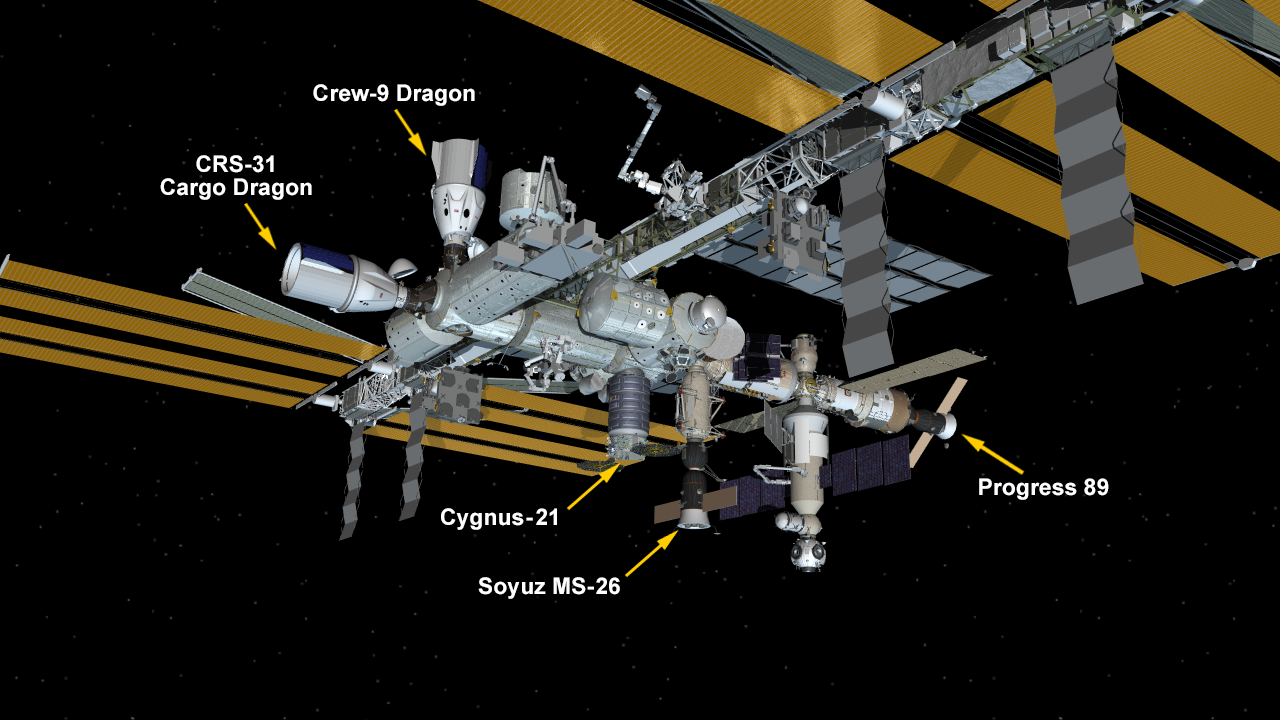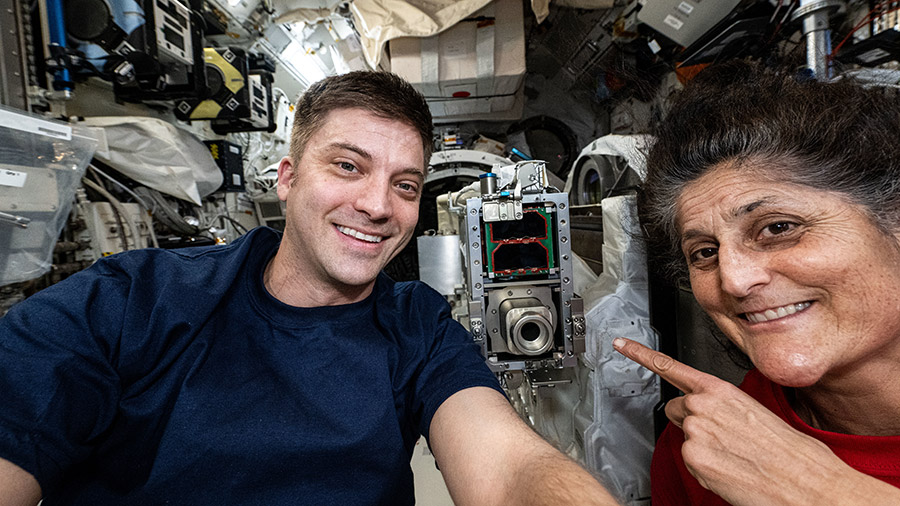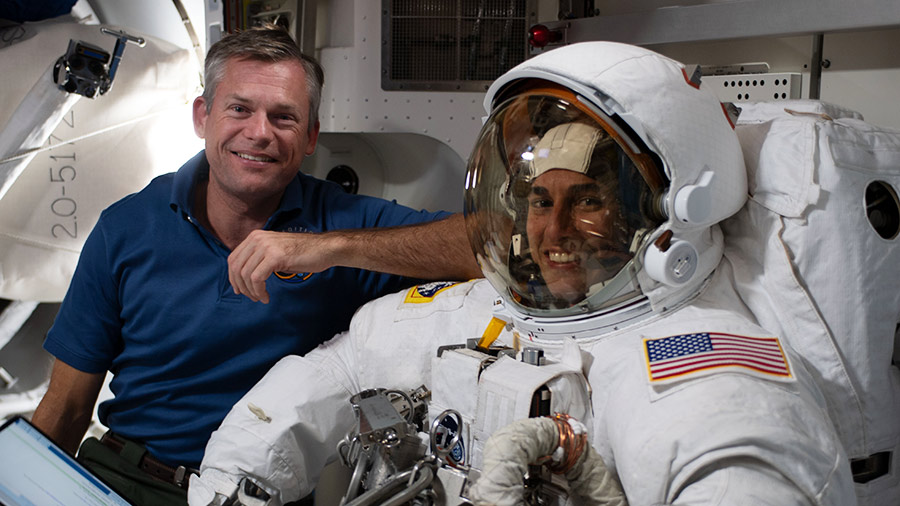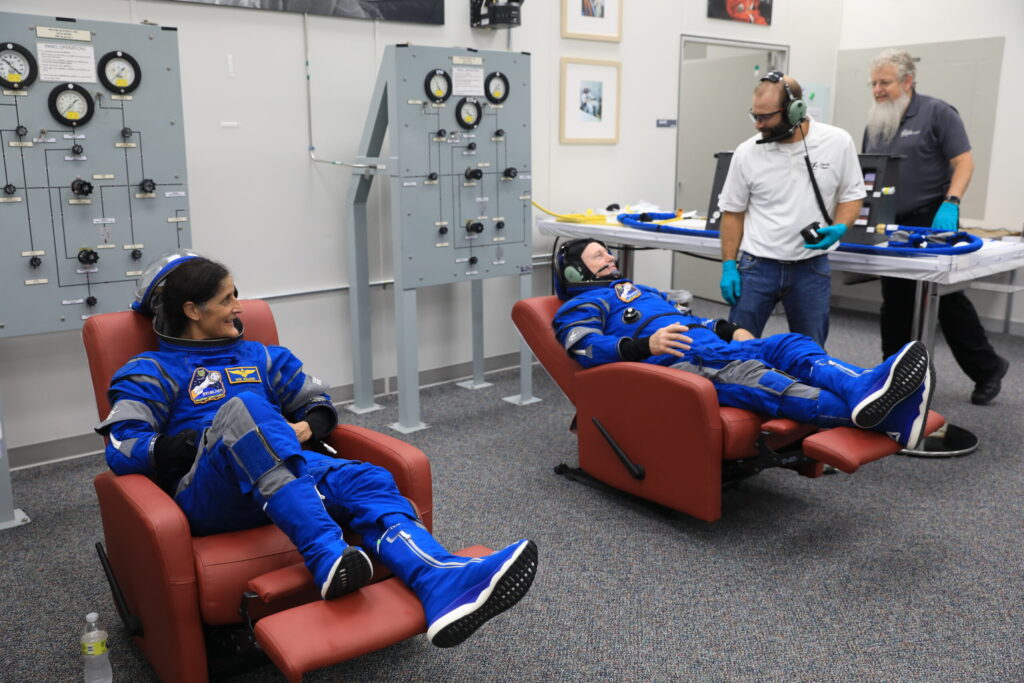
Space biology to improve health and robotics to promote education were the primary research topics aboard the International Space Station on Tuesday. The Expedition 72 crew members also saw the departure of a cargo craft as another one prepares for launch.
NASA Flight Engineer Don Pettit continued nourishing research samples and servicing an artificial gravity-generating incubator housing the samples inside the Kibo laboratory module. Pettit will process the samples during the week inside Kibo’s Life Science Glovebox helping researchers prevent space-caused immune system dysfunction and protect astronaut health.
NASA Flight Engineer Nick Hague reviewed the biology study’s operations and will soon assist Pettit as they process the samples. Hague also unpacked health accessories from the SpaceX Dragon cargo craft resupplying medical kits inside the space station. He later joined Pettit troubleshooting cargo-securing hardware located inside Dragon.
Commander Suni Williams collected station water samples for microbial analysis at the beginning of her shift. Then with assistance from Flight Engineer Butch Wilmore she serviced engineered bacteria and yeast samples for a biomanufacturing study and installed the specimens in cold stowage and a variable gravity simulator for later examination.
Wilmore also activated an Astrobee robotic free-flyer and tested its operation inside Kibo supporting a robotics competition to choose student-written algorithms that control the device. Wilmore worked in conjunction with engineers on the ground monitoring the Astrobee’s flight trajectory and its gesture recognition software. The Astrobee-Zero Robotics contest is meant to inspire students from around the world to pursue STEM and space-related careers.
The trash-packed Progress 88 cargo craft ended its resupply mission today undocking from the orbital outpost at 7:53 a.m. EST after six-months docked to the Poisk module. The Progress 88 descended into Earth’s atmosphere just over three hours later for a fiery, but safe destruction above the South Pacific Ocean.
Roscosmos Flight Engineers Alexey Ovchinin and Ivan Vagner deactivated computer and video monitoring gear after the Progress 88’s departure. Flight Engineer Aleksandr Gorbunov spent his day on orbital plumbing and cleaning duties throughout the station’s Roscosmos segment.
The Progress 90 resupply ship now stands at its launch pad at the Baikonur Cosmodrome in Kazakhstan counting down to a lift off 7:22 a.m. on Thursday. It will dock to the vacated Poisk module at 9:35 a.m. on Saturday loaded with about 5,500 pounds of cargo.
Learn more about station activities by following the space station blog, @space_station and @ISS_Research on X, as well as the ISS Facebook and ISS Instagram accounts.
Get the latest from NASA delivered every week. Subscribe here: www.nasa.gov/subscribe




